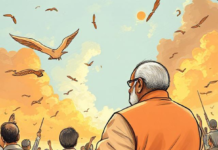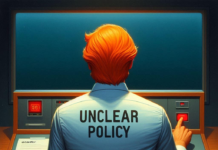INVESTMENT PERSPECTIVE
By J Mulraj
Apr 17-23, 2022
Technology can bring down costs, but over the longer term
By: J Mulraj
Besides the senseless deaths, injuries and disruptions of lives of 4 million Ukrainians, the economic fallout of the Russian war on Ukraine will be devastating. The high price of Brent crude, now at $ 106/b, (down from a recent high of $ 124, (thanks to release of strategic petroleum reserves, a temporary measure to stanch the rise), will fuel inflation. Crude oil prices will rise further, especially if what Peter Ziehan, speaking at the ET 2nd Economic Conclave, happens. Watch this video (around 16:15) where he says 3-4 million b/day of oil going to Europe may be lost within a few months, because without offtake, production needs to be switched off. And switching off oil flow irretrievably damages the pipes in the Siberian permafrost. The last time oil flow in Siberia was switched off, it was restored, with Western expertise, after 31 years. So a shortage of 3-4 m. b/d, likely more, would spike crude oil prices sharply, and so make the fight against inflation that much more difficult.
Then there is food inflation. Russia and Ukraine are major suppliers of wheat to the world, the offtake of which is curtailed as ships lose insurance cover if the enter a war zone, from where the wheat is to be lifted. Since Ukrainian farmers cannot plant wheat in April, due to the war, the full impact will be felt later. Add to that a shortage of fertiliser, supplied by Russia, Belarus and Ukraine. Global prices of fertilisers have shot up, and farmers are reducing usage due to cost, which will impact crop yields. It is feared that a wheat shortage will trigger food riots, especially in Africa and Middle East, of the sort that led to the Arab Spring riots a few years ago.
German retailers are expected to raise food prices by 20-50% next week!
China is also facing a food crisis, even though it has stockpiled a lot of grain. Its zero tolerance to Covid policy has resulted in enforcement of a strict lockdown, even for farmers out to plant crops. The zero tolerance policy has prevented farm inputs from reaching the villages. The policy has now been relaxed. China imports some 2 m. tonnes of corn from Ukraine, as pig feed. Pigs make up 60 % of Chinese meat consumption.
This zero tolerance policy has shut down Shanghai, a city of 26 m. and a major transport hub for imports and exports. Truck drivers are loath to drive into Shanghai for fear of being unable to leave it for two weeks, due to the policy, and supply chain bottlenecks will result in shortages, and price inflation, for a lot of other goods.
So inflation is set to rise. Other than rising input costs of commodities, plus rising energy costs, the cost of labour has also risen, especially in USA. So, too, the cost of capital. The US Fed Chairman, Jerome Powell, has warned that it may raise interest rates at a faster pace in its May meeting (50 basis points instead of 25), and the market expects the same in June, too.
Now for some good news.
Technology is providing a lot of hope of taming inflation.
RethinkX is a think tank started by Tony Seba, who has studied technological disruptions, in areas of food, energy, transportation and others. As per this study, the cost of proteins will, thanks to the new technology of precision fermentation, come down sharply, and will disrupt the animal farming industry completely. The cost of protein will be 1/5th by 2030 and 1/10th by 2035, as per his assessment. This will be because of precision fermentation, in a lab, which will provide the same source of protein which come from dairy products, thus disrupting the animal farming industry. So, it would be 100 times more land efficient (freeing up huge tracts of land that could be used for re-forestation, and hence, carbon capture) and 10 times more water efficient. Animal meat can be produced, using a sample, in a petri dish, using cellular agriculture, without the need of large animal farms, with pastures to graze them, and land to grow corn/soy and other feed. So technology will help solve the food inflation and shortage problem.
So also in the field of energy. Seba feels that the world can transition to a 100% Solar-Wind-Batteries (SWB) scenario which will provide, OPEC and other oil producing nations.
After that, we will hopefully be able to commercially develop nuclear fusion.
Another technology that will drive down costs is 3D printing. This is a method of manufacture that is additive (it adds layers of materials) instead of subtractive. Convention methods of production are subtractive; one takes a large block of stone, for example, and chips away what is not needed, to end up in a recognisable statue. With a 3D printer, each layer is added, based on a design fed into the printer, one at a time, hence without wastage.
3D printing will reduce manufacturing costs as it eliminates wastage. Almost anything can be, and is being, 3 D printed. Including a house!
So these technologies can help tame inflation.
But not immediately. There is a time lag for different technologies to mature and be accepted.
So we have to bide time. The question is – will geopolitics allow us that luxury of time?
It seems as though USA would have to encourage fracking, which had made it energy independent earlier, but was then discarded, in order to meet environmental aims. One of the first acts of Biden was signing an executive to stop further lease of federal land for fracking. This has now been watered down, because oil/gas from fracking is needed. The fossil fuel industry was also shunned by the financing industry, which adopted ESG (Environment, Social and Governance) norms for deciding whether or not to invest, and has not invested in capex to boost production. This, too, may be watered down under the circumstances.
But inflation will remain untamed in the near future, and so, strong interest rate hikes by central bankers can be expected. This would not bode well for equity markets.
Last week the BSE Sensex closed at 57197, down 1141 points over the week.
Equity markets are holding their head above water in the absence of attractive alternatives. In India, a lot of the money flowing into equity is via mutual funds, using SIP (systematic investment plans). These investors have reaped good rewards. But many of them may not have witnessed a major downturn, yet.
Picture Source: https://za.opera.news/za/en/sports/6e4dbbf4a14f728b4cf72f0690a0abcc










































COMMENTS